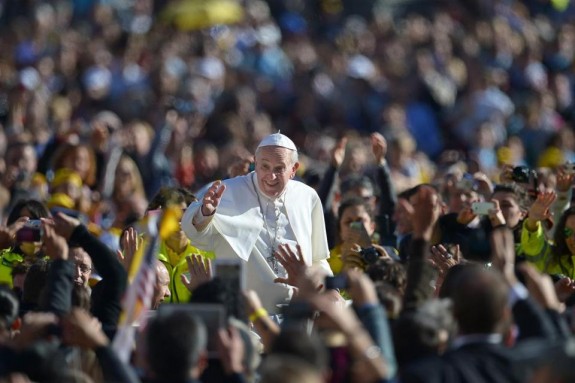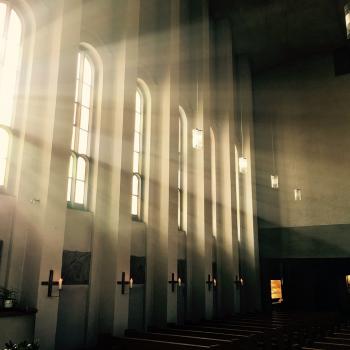A snapshot of reactions and insights from a variety of people in The Boston Globe:
After one of the worst decades in Roman Catholic church history, marked by a devastating sexual abuse scandal, internecine turf battles at the Vatican, and a widening chasm between the hierarchy and the people, Pope Francis is changing the conversation about Catholicism around the world — and here at home.
Interviews with a dozen local Catholics offer a sense of how New Englanders have been absorbing the pope’s words and gestures, considering their meaning for the church and for their own spiritual lives.
They come from three very different parishes: Immaculate Conception is a multicultural, urban parish on Broadway in Everett, where Mass is offered in English, Haitian Creole, and Spanish. Our Lady of the Holy Rosary in Rochester, N.H., is a traditionalist church with a thriving charismatic prayer ministry. St. Susanna in Dedham is known as one of the most liberal parishes in the Archdiocese of Boston.
What they have in common: energetic and beloved pastors, vibrant communities, and a powerful sense of hope for the future of their church.
Said Philomène Péan of Immaculate Conception: “I feel like Francis is ready, even if it would kill him, to say the truth. I like his radicalism.”
Francis. That’s what she calls him, just Francis.
“Because he is one of us,” she says. “There is no barrier.”
The first Jesuit pope reminds Philomène Péan of the Jesuits in Weston who helped prepare her to become a spiritual director. They made her feel comfortable, free to be herself.
“They really show you the true face of Jesus,” she says.
Péan has built her life around the church. When she was in her early 20s, she started a mission church in Luly, an impoverished village in her native Haiti. The congregation grew from four members to more than 200. She sat with mothers of sick children, prayed with fishermen in their boats, even preached on Sundays. Everything a priest does, except for the sacramental work forbidden to women — marriage, baptisms, the consecration of bread and wine.
The experience deepened Péan’s love for her church — and her impatience with it. She wants the all-male hierarchy to let women and unordained men do more, make more decisions, even participate in the election of popes. The economic disparity within the church sickens her.
“You have poor Haitians who are serving the same God who cannot even have one meal,” she says.
Two decades on, Péan spends most of her time taking care of other people. She is a pastoral associate serving Immaculate Conception’s 500-member Haitian community, and a hospital chaplain pursuing a doctorate in ministry.












